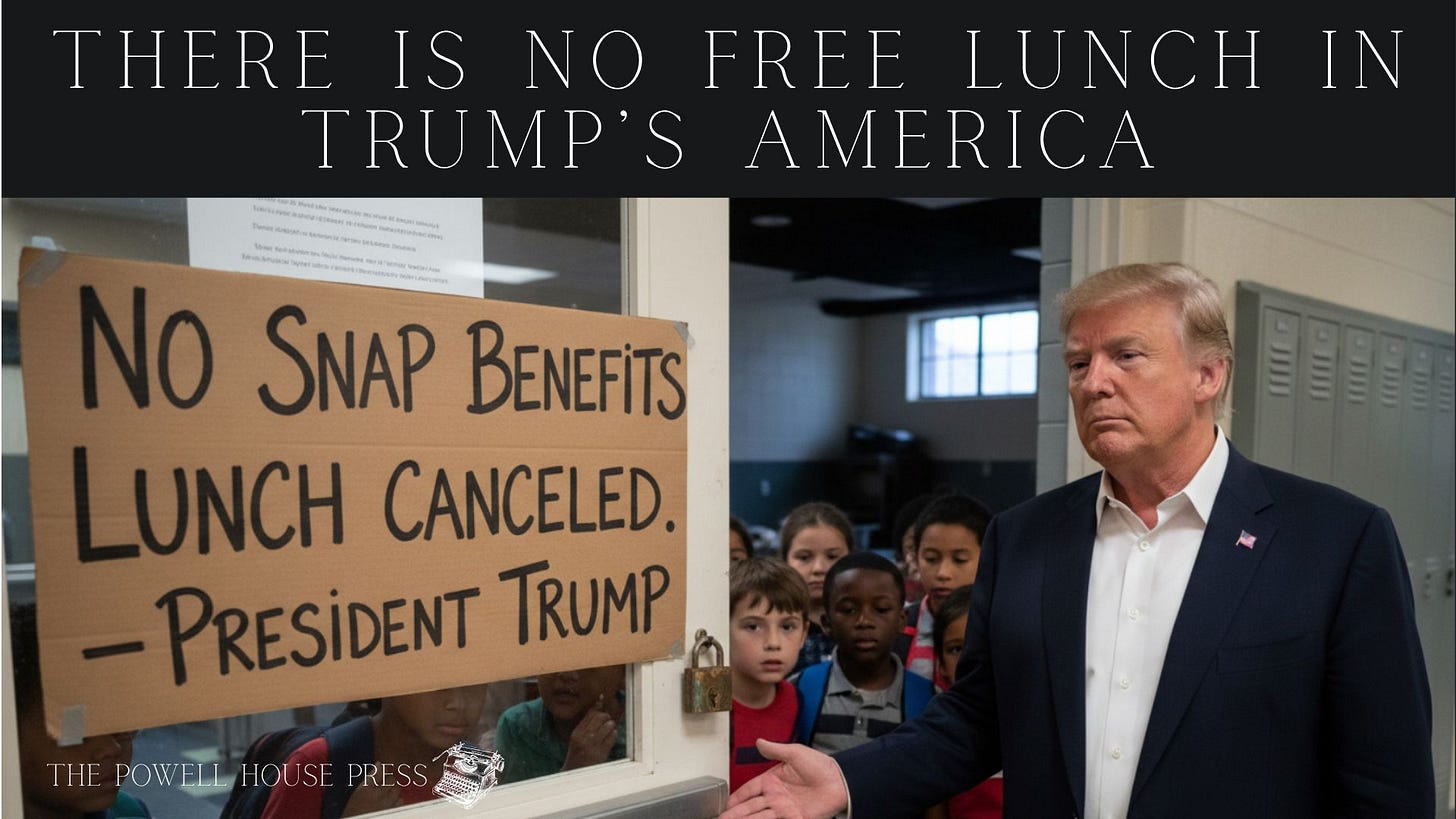Trump's Food Fight: Supreme Court Halts Full SNAP Benefits as 42 Million Go Hungry
The Trump administration just asked the Supreme Court for permission to withhold $4 billion in food assistance from 42 million Americans—including 13 million children—during a government shutdown. Justice Ketanji Brown Jackson granted a temporary stay, freezing benefits while appeals courts decide whether the government can be forced to feed its own citizens.
Let that sink in: We need judicial intervention to make the government provide food.
Meanwhile, this same administration has appointed Robert F. Kennedy Jr. to oversee the nation’s health agencies—a man who has spent years promoting vaccine skepticism and recently suggested that Tylenol might harm children’s neural development, despite zero credible scientific evidence.
Here’s what we actually know damages children’s brains: malnutrition. Not theoretical risks from vaccines that have saved millions of lives. Not speculative concerns about acetaminophen. Hunger. The kind 13 million American children are experiencing right now because…



